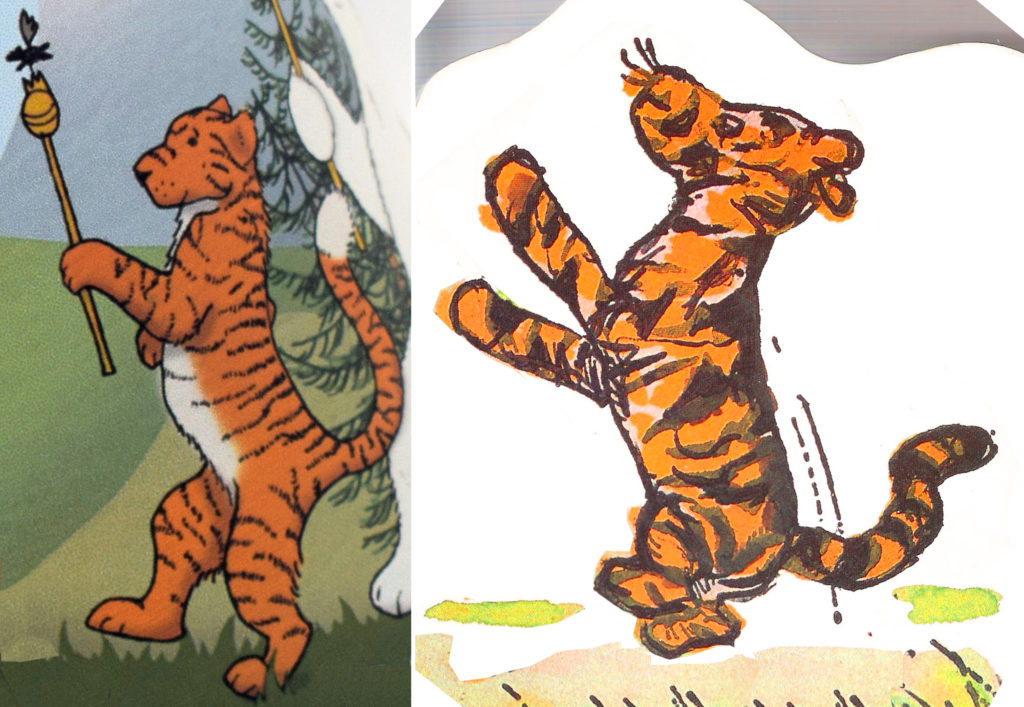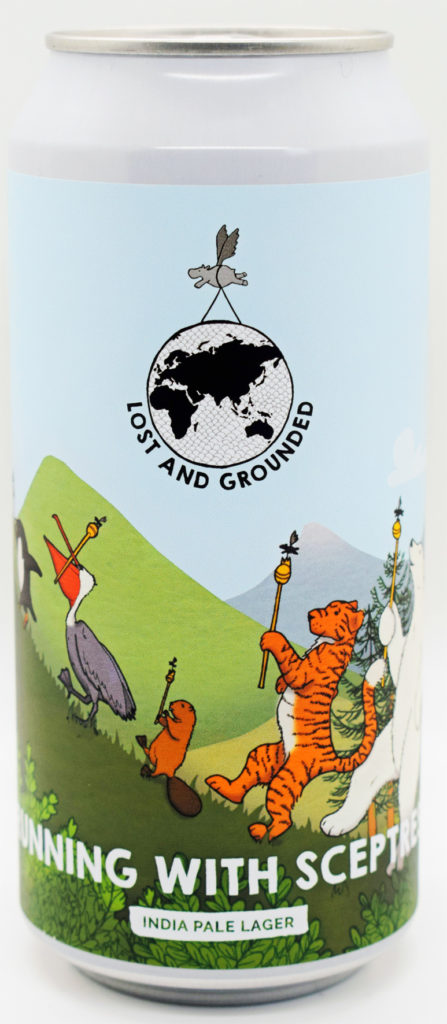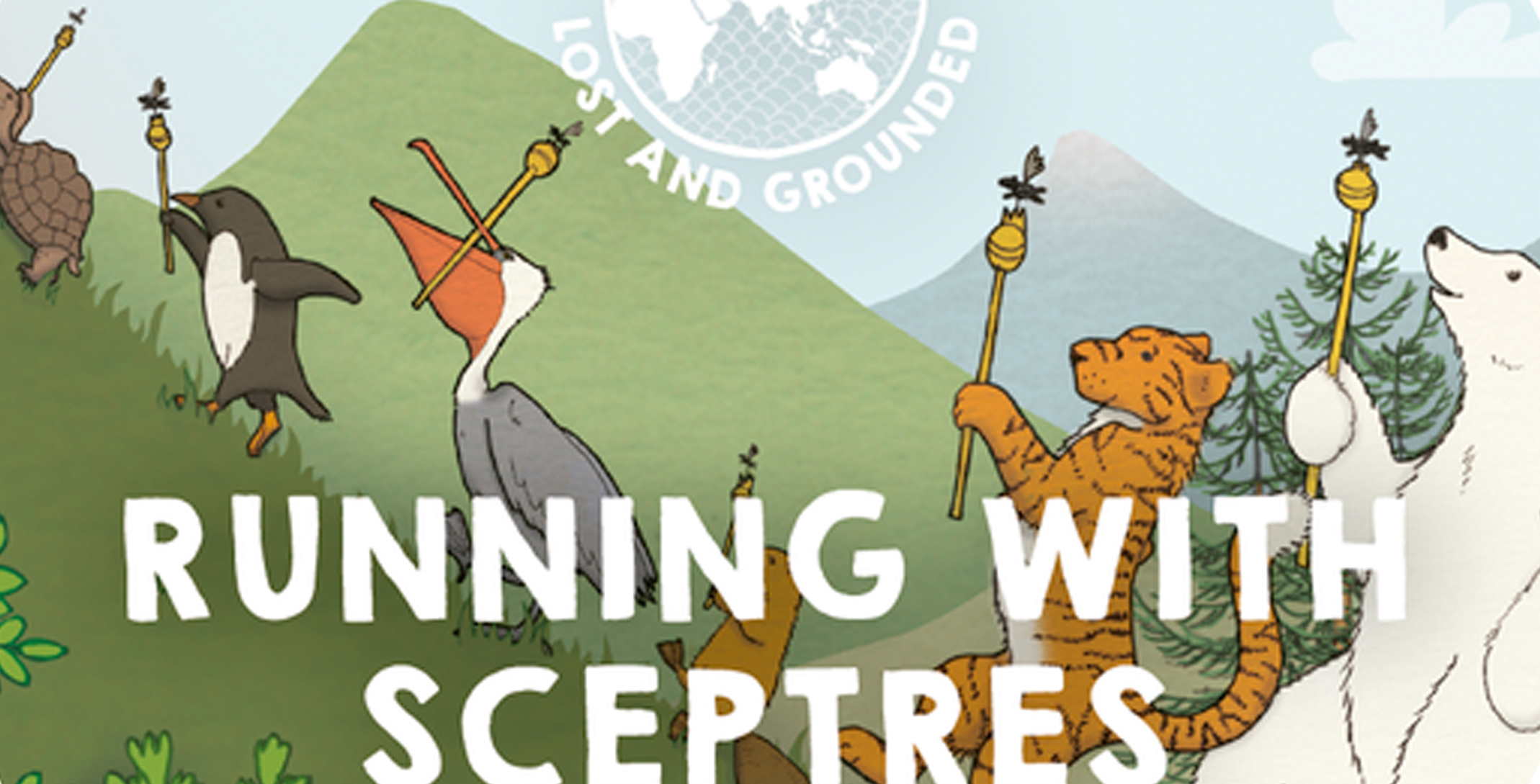You’ll have seen, I’m guessing, the row that has exploded over the ban just announced by the Portman Group, the alcohol industry’s self-appointed regulatory body, on the Bristol-based brewery Lost and Grounded’s “India Pale Lager” Running with Sceptres for breaching paragraph 3.2 (h) of its code by appealing to children.
The problem is the artwork, which features cartoon animals, and despite Lost and Grounded insisting that these were NOT cartoon animals but ” artistic illustrations”, the Portman Group disagreed, declared that “the prominence and anthropomorphic character of the animals on this specific packaging created a particular appeal to children,” thus offending against its Code of Practice on the Naming, Packaging and Promotion of Alcoholic Drinks. As a result, the on and off-trade has been asked not to order Running with Sceptres until the packaging is changed. More than 150 companies are signed up to the code of practice, covering almost all the drinks industry.
I am certainly no fan of the Portman Group and its frequently nonsensical decisions. But I suggest that if you want to try to fight its actions against brewers it deems are breaking its code, Running with Sceptres is NOT a good ditch to die in. Can you honestly say their tiger bears no resemblance to Shepard’s Tigger? Is it not the case that the whole illustration looks like an homage to Where the Wild Things Are?
Indeed, the artwork for Running with Sceptres could hardly have broadcast the message “report me to the Portman Group for appealing to kids” more loudly if those words had actually been printed on the can.

The reason for the Portman Group’s existing is to prevent any statutory body being set up to oversee alcohol advertising and marketing, and the Portman Group will thus always act tough, to forestall criticism, and to avoid having itself replaced by a regulatory committee imposed on the industry by the government.
Having just come back from Norway, where alcohol marketing is so restricted by law – banned completely, basically – that some places even ban tap handles with beer names on, and brewery T-shirts, I can tell you: actual civil servants and government employees telling you what you can and cannot do to promote your beer is NOT something you want.
Though we can agree that the decision in this case is stupid, wrong, restrictive and nonsensical, I cannot say, when I saw the illustration on the can, that I was surprised at the decision the Portman Group made. Angered, yes. Surprised, no. This is a game of appearances, and it can’t be denied there’s a massive similarity of appearance between the Running with Sceptres artwork and the kind of artwork found in children’s books.

Pete Brown wrote in a tweet: “Guidelines state [artwork] shouldn’t have particular appeal to under-18s. Of the people into Winnie the Pooh, and then the subset of those who have been exposed to the style of illustration [on the can], what data exists that can show they are mostly under 18?” Logically, of course, he’s absolutely correct. The complaint, and the Portman Group’s response, are nonsense. But actual facts are irrelevant here.
There is a legitimate position in declaring: “Why shouldn’t we use whatever artwork we like on our cans and bottles? What actual evidence is there that such artwork will encourage under-18s to drink the contents?” And you’d be right. But in the real world, there will always be those wowsers who will declare that such images COULD encourage children to pick up the can or bottle and sample what’s inside, and the Portman Group will always head those people off and ban such images, in the frankly justifiable fear that if it isn’t seen to be banning such images, then some politician will declare that industry self-regulation has failed, and state regulation will be brought in instead.
So: if you don’t want state regulation of the advertising and marketing of alcohol, don’t give the wowsers reasons to complain by using cartoon images on your cans and bottles that would not look out of place in the children’s section of a bookshop. And if you feel that restricts your artistic liberty, I really don’t have any sympathy: I’d rather see cartoon teddies and tigers banned from beer bottles than a Norwegian-style total prohibition on any sort of advertising or marketing.


My feeling is, existing ads and branding should be left alone, or grandfathered. Rather, the industry code should require viz. its adherents clearance in advance of branding and ads. This seems much fairer to the interests involved.
The problem is that many people still see this as confronting “big beer” rather than dealing with the threat from the anti-drink lobby.
Don’t be coy. By “wowsers” you mean “neo prohibtionists”, and they will *not* be content until they ban all alcohol.
I wasn’t aware that using the word “wowsers” was coy – I thought it was at least vaguely aggressive.
Martyn:
Point taken that forewarned is forearmed, but then too responsible critique may affect future panels’ reasoning – surely it is not a fixed and unchangeable quantity, in other words. And perhaps ultimately the process will be revised to balance better the interests here.
To add to Jay’s point, can the Gilroy art work for Guinness (1930s-1950s), based on creative animals imagery, have been so misguided?
The world has changed a lot since then, but that much?
I had many run-ins with neo-prohibitionists when I was lobbying to reform Alabama’s beer laws. They will lie, cheat, and smear to try to push their agenda. I apologise if my words seemed harsh to you, it’s because I despise neo-prohibitionists with a fiery passion.
For me, the arguments isn’t ‘will they appeal to children,’ but ‘will they appeal to beer drinkers.’ I’m 61 and I love cartoons. So do many adults. Just because something appeals to both doesn’t mean we have to get rid of everything that I love that also happens to be loved by kids. That’s ridiculous. They could do a Tigger beer using one of Shepard’s originals illustrations on the label and I’d buy it. Oh, and a child might like it, too. Tough. We can’t remove from the adult world everything that we think a child will like. too. And so what if it appeals to a child. They’re still not allowed to buy it, correct?
All that you say is true, Jay. But the issue is not really what will and will not appeal to children, the issue is how tough the Portman Group can be seen to be in order to head off statutory regulation.
[…] with Sceptres is not the ditch to die in over the Portman Group and its bans…” and then wrote more. Folk were cloyingly superior, spitting angry and even spent all the rent money. Pete went all Pete […]
[…] This time, Martyn Cornell has taken on the job of writing the obligatory opinion piece on the subject: […]